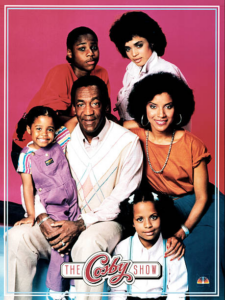
This year marks a monumental milestone in American television history, as The Cosby Show celebrates its 40th anniversary. Premiering on September 20, 1984, the show not only revolutionized the landscape of television but also reshaped societal perceptions of African American families on screen. To honor this iconic achievement, the University of Baltimore (UB) welcomed Keshia Knight Pulliam, who portrayed the beloved character Rudy Huxtable, to reflect on her role in the series and its lasting impact on popular culture.
A Groundbreaking Show
Created by Bill Cosby, The Cosby Show broke new ground in its portrayal of an affluent, loving African American family. The series was a departure from the typical portrayals of Black families in television at the time, which often centered around poverty or stereotypes. By showcasing Dr. Heathcliff Huxtable, a successful obstetrician, and his wife Clair, a lawyer, along with their five children, the show painted a picture of professional success, strong family values, and a dynamic, relatable narrative.
At its peak, The Cosby Show was the number one television show in America for five consecutive years, winning numerous awards, including several Emmy Awards. It introduced audiences to the multigenerational dynamics of the Huxtable family, blending humor with powerful life lessons. The show’s success not only transformed television programming but also made an indelible impact on future generations of Black actors and filmmakers.

Keshia Knight Pulliam’s Legacy
As the youngest Huxtable child, Rudy, Keshia Knight Pulliam became a household name and an early role model for many. Now 44, Pulliam’s portrayal of the mischievous yet lovable Rudy made her one of the most cherished child stars of the era. Her presence on the show was crucial in portraying the innocence and warmth that permeated the Huxtable family, contributing to the show’s accessibility to all audiences.
During her appearance at UB, Pulliam shared memories from her time on the series, expressing gratitude for the opportunities it provided her as an actress and for the doors it opened for future generations of Black talent in Hollywood. “The Cosby Show was more than just a TV show,” Pulliam said in her keynote address. “It was a platform that allowed us to redefine what African American families could look like on television. We were able to show the world that Black families could be strong, loving, and successful.”
Cultural Impact and Legacy
The cultural significance of The Cosby Show cannot be overstated. It not only provided positive representation but also challenged long-held stereotypes about race and class in the media. By featuring a successful Black family in a prime-time television slot, the show helped normalize the idea that African Americans could occupy positions of power, wealth, and influence. In doing so, The Cosby Show opened doors for other shows with diverse casts and storylines, such as A Different World, Living Single, and The Fresh Prince of Bel-Air.
Moreover, the impact of The Cosby Show extends beyond entertainment. It provided important lessons on family, education, and overcoming adversity. The show’s nuanced exploration of relationships, both within the Huxtable household and in the broader community, resonated with viewers of all ages and backgrounds. Episodes like the one in which Cliff Huxtable and his children discuss important social issues still stand as examples of how television can spark dialogue and promote understanding.
The Show’s Continued Relevance
While The Cosby Show ran for eight seasons, its relevance has endured. The series remains a touchstone for discussions about race, media representation, and the evolving role of families in American society. The anniversary celebration at UB, alongside Pulliam’s reflective remarks, reaffirmed the ongoing importance of diversity in television and the entertainment industry at large.
“We have come a long way, but there is still so much work to do,” Pulliam said, urging the next generation of television creators to continue pushing boundaries and creating stories that reflect the rich diversity of the American experience. “The Cosby Show showed us what was possible, but now it’s up to us to continue that work.”
Conclusion
As UB celebrates the 40th anniversary of The Cosby Show, we are reminded not only of the groundbreaking achievement of the show but also of its profound impact on American culture. Keshia Knight Pulliam’s presence and reflections on the series underscore the lasting legacy of The Cosby Show, which continues to serve as a beacon of positive representation and a source of inspiration for future generations.
By offering a window into the lives of a loving, successful African American family, The Cosby Show forever changed the face of television, paving the way for greater diversity and inclusion in the media landscape. As we look forward to the next 40 years, we can only hope that the lessons and achievements of The Cosby Show will continue to guide the entertainment industry toward a more equitable and representative future.
